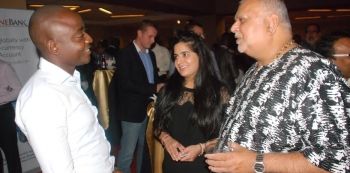
In a tender Facebook post yesterday, Mark Zuckerberg announced that he and his wife Priscilla are expecting a daughter. But perhaps even the bigger revelation was that they’d experienced three miscarriages in the last two years. Zuckerberg says he hopes his honesty about their difficult couple of years will open a larger conversation about miscarriage, since so many who experience it suffer in silence, needlessly.
He writes:
You feel so hopeful when you learn you’re going to have a child. You start imagining who they’ll become and dreaming of hopes for their future. You start making plans, and then they’re gone. It’s a lonely experience. Most people don’t discuss miscarriages because you worry your problems will distance you or reflect upon you — as if you’re defective or did something to cause this. So you struggle on your own.
And Zuckerberg is right. Miscarriage is much more common than people think, and yet very few people talk about it. A study last spring polled over 1,000 people and found that many are way off in their estimation on how often miscarriage happens and the things that can cause it. For instance, though miscarriage happens in about 25% of pregnancies, many people believed that it’s extremely rare, guessing that it only happened just 5% of the time. That’s a pretty big disconnect.
“Miscarriage is a traditionally taboo subject that is rarely discussed publicly – even though nearly 1 million occur in the U.S. each year, making it the most common complication of pregnancy,” said author of the study Zev Williams.
Many respondents in the study didn’t know what causes miscarriage, believing that things like stress, lifting heavy objects, having an STD, using contraceptives in the past, or even getting into an argument could cause a miscarriage – all of which are largely untrue. A lot of people – almost a quarter – believed that lifestyle choices like smoking or drinking were the most common cause of miscarriage. The reality is that chromosomal problems in the fetus, uterine problems, and hormone or autoimmune disorders in the mother, especially untreated health conditions, make up the vast majority of all miscarriages. Things like sex, stress, exercise, and going to work don’t generally cause it.
And then there’s the emotional fallout of miscarriage. In the same study, women and their partners who’d experienced miscarriage often felt guilty, ashamed, or as if they’d done something wrong. Less than half of the individuals felt like they’d gotten enough emotional support in the recovery process. Many said hearing of friends’ experiences had made them feel less isolated in coping with it – and almost 30% said that celebrities’ revelations about their own miscarriages had made them feel less alone in the process.
But we shouldn’t have to look to celebrities to make us feel less alone. Like other health conditions that have been swept under the rug for many years and are finally being talked about, miscarriage should be one that’s discussed honestly. Though miscarriage is difficult to talk about because it has a huge emotional component, including a grieving process, this is exactly why it needs to be. Dealing with it in isolation, as with any loss, makes it feel much worse.
“Because miscarriage is very common but rarely discussed, many women and couples feel very isolated and alone after suffering a miscarriage,” said Williams. “We need to better educate people about miscarriage, which could help reduce the shame and stigma associated with it. We want people who experience miscarriage to know that they’re not alone—that miscarriages are all too common and that tests are available to help them learn what caused their miscarriage and hopefully to help them in subsequent pregnancies.”
“In today’s open and connected world,” wrote Zuckerberg, “discussing these issues doesn’t distance us; it brings us together. It creates understanding and tolerance, and it gives us hope.”
[h/t:forbes]











